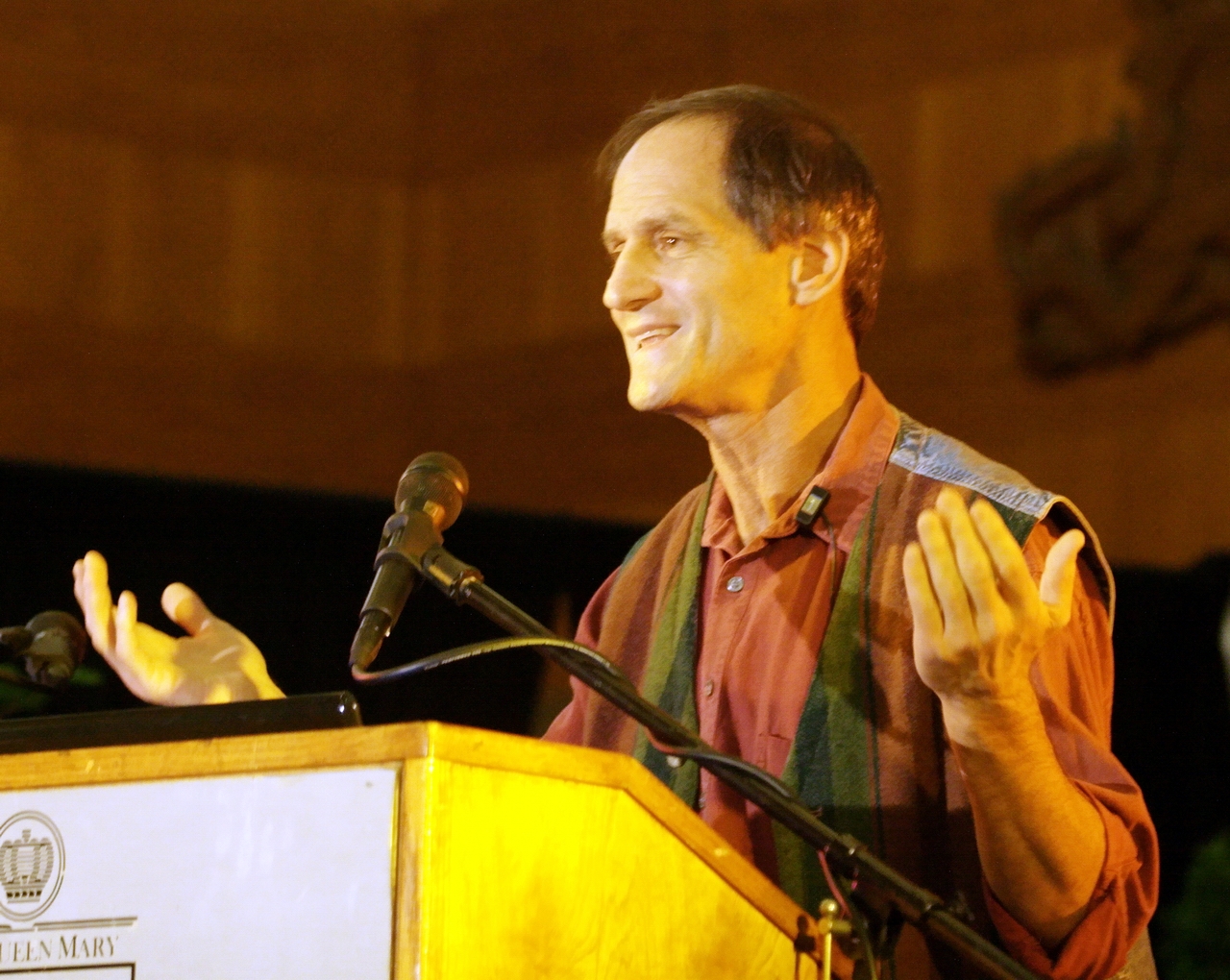|
Irreligion In New Zealand
Irreligion in New Zealand refers to atheism, agnosticism, deism, religious scepticism and secular humanism in New Zealand society. Post-war New Zealand has become a highly secular country, meaning that religion does not play a major role in the lives of most people. Although New Zealand has no established religion, Christianity had been the most common religion since widespread European settlement in the 19th century. Demographics Statistics New Zealand gathers information on religious affiliation in the five-yearly census. Completing a census form is compulsory by law for every person in New Zealand on census night but respondents are able to object to answering the question of religious affiliation, and around 6% do object. [...More Info...] [...Related Items...] OR: [Wikipedia] [Google] [Baidu] |
Atheism
Atheism, in the broadest sense, is an absence of belief in the Existence of God, existence of Deity, deities. Less broadly, atheism is a rejection of the belief that any deities exist. In an even narrower sense, atheism is specifically the position that there no deities. Atheism is contrasted with theism, which is the belief that at least one deity exists. Historically, evidence of atheistic viewpoints can be traced back to classical antiquity and Nāstika, early Indian philosophy. In the Western world, atheism declined after Christianity gained prominence. The 16th century and the Age of Enlightenment marked the resurgence of atheistic thought in Europe. Atheism achieved a significant position worldwide in the 20th century. Estimates of those who have an absence of belief in a god range from 500 million to 1.1 billion people. Atheist organizations have defended the autonomy of science, freedom of thought, secularism, and secular ethics. Arguments for atheism range from p ... [...More Info...] [...Related Items...] OR: [Wikipedia] [Google] [Baidu] |
International Social Survey Programme
The International Social Survey Programme (ISSP) is a collaboration between different nations conducting surveys covering topics which are useful for social science research. The ISSP researchers develop questions which are meaningful and relevant to all countries which can be expressed in an equal manner in different languages. The results of the surveys provide a cross-national and cross-cultural perspective to individual national studies. By 2021, 58 countries have already taken part in the ISSP. History The ISSP was founded in 1984 by research organizations from four countries: * Zentrum für Umfragen, Methoden, und Analysen (ZUMA), Mannheim, Germany, now GESIS – Leibniz Institute for the Social Sciences * National Opinion Research Center (NORC), University of Chicago, Chicago, Illinois, United States. * Social and Community Planning Research (SCPR), London, United Kingdom, noNational Centre for Social Research, NatCen* Research School of Social Sciences (RSSS), Australia ... [...More Info...] [...Related Items...] OR: [Wikipedia] [Google] [Baidu] |
Socialism In New Zealand
Socialism in New Zealand had little traction in early colony of New Zealand, colonial New Zealand but developed as a political movement around the beginning of the 20th century. Much of socialism's early growth was found in the labour movement. The extent to which socialism plays a part in modern Politics of New Zealand, New Zealand politics depends on which definitions of socialist are used, but few mainstream politicians would describe themselves using the word "socialist". The term "social democracy, social-democrat" is more common, but the general "left-wing politics, left-wing" or "centre-left politics, centre-left" are used far more frequently. New Zealand has a complicated assortment of socialist causes and organisations. Some of these play a considerable role in public activism, such as the anti-war movement; other groups are strongly committed to socialist revolution. Several prominent List of political parties in New Zealand, political parties in New Zealand, such as ... [...More Info...] [...Related Items...] OR: [Wikipedia] [Google] [Baidu] |
Religion In New Zealand
Religion in New Zealand is diverse. The country has no state religion and freedom of religion has been protected since the signing of the Treaty of Waitangi. While New Zealand was predominantly Christian from the time of European colonisation, the country has, over the last decade, become post-Christian. In the 2023 census 51.6 per cent of New Zealanders stated they had Irreligion, no religion and another 6.9 percent did not state a religion. In the 2023 census 32.3% of the population identified as Christianity in New Zealand, Christian, making up just over 77.5% of religious people in New Zealand. Other major religions include Hinduism in New Zealand, Hinduism (2.9%), Islam in New Zealand, Islam (1.5%), Religion of Māori people, Māori religion (1.3%), Buddhism in New Zealand, Buddhism (1.1%), and Sikhism in New Zealand, Sikhism (1.1%). Overview The religion of Māori people before History of New Zealand, European colonisation has been generally and somewhat dismissively cat ... [...More Info...] [...Related Items...] OR: [Wikipedia] [Google] [Baidu] |
Demographics Of Atheism
Accurate demographics of atheism are difficult to obtain since conceptions of atheism vary considerably across different cultures and languages, ranging from an active concept to being unimportant or not developed. Also in some countries and regions atheism carries a strong stigma, making it harder to count atheists in these countries. In global studies, the number of people without a religion is usually higher than the number of people without a belief in a deity and the number of people who agree with statements on lacking a belief in a deity is usually higher than the number of people who self-identify as "atheists". According to sociologist Phil Zuckerman, broad estimates of those who have an absence of belief in a deity range from 500 to 750 million people worldwide as of 2006. An earlier estimate stated that there were 200 million to 240 million self-identified atheists worldwide as of the year 2000, with China and Russia being major contributors to these figures. Accor ... [...More Info...] [...Related Items...] OR: [Wikipedia] [Google] [Baidu] |
Blasphemy Law In New Zealand
The publishing of any "blasphemous libel" was a crime in New Zealand under Section 123 of the Crimes Act 1961 which allowed for imprisonment for up to one year. However, Section 123 protected all publications and opinions on any religious subject expressed in good faith and decent language against prosecution and specified that prosecution may proceed only with the leave of the attorney-general. On 5 March 2019, Parliament unanimously passed the Crimes Amendment Bill, which repealed Section 123 of the Crimes Act. The bill received the Royal Assent on 11 March 2019 and came into force the following day. Origin of New Zealand blasphemy law The New Zealand offence of blasphemous libel originated in England with the common law offences of blasphemy and blasphemous libel. All English common law offences were received into New Zealand law in 1840. In 1893, the New Zealand ''Criminal Code Act 1893'', based on the work of James Fitzjames Stephen and developments by George Burbidge in the C ... [...More Info...] [...Related Items...] OR: [Wikipedia] [Google] [Baidu] |
Ministry For Culture And Heritage
The Ministry for Culture and Heritage (MCH; ) is the department of the New Zealand Government responsible for supporting the Creative New Zealand, arts, Culture of New Zealand, culture, New Zealand Historic Places Trust, built heritage, Sport New Zealand, sport and recreation, and Public broadcasting in New Zealand, broadcasting sectors in New Zealand and advising government on such. History The Ministry of Cultural Affairs had been created in 1991; prior to this, the Department of Internal Affairs (New Zealand), Department of Internal Affairs (DIA) had provided oversight and support for arts and culture functions. MCH was founded in 1999 with the merger of the former Ministry of Cultural Affairs and the history and heritage functions of the DIA, as well as some functions from the Department of Conservation (New Zealand), Department of Conservation and Ministry of Commerce (New Zealand), Ministry of Commerce. The purpose of the merger of functions and departments was to create a ... [...More Info...] [...Related Items...] OR: [Wikipedia] [Google] [Baidu] |
The Encyclopedia Of New Zealand
''Te Ara: The Encyclopedia of New Zealand'' is an online encyclopedia established in 2001 by the New Zealand Government's Ministry for Culture and Heritage. The web-based content was developed in stages over the next several years; the first sections were published in 2005, and the last in 2014 marking its completion. ''Te Ara'' means "the pathway" in the Māori language, and contains over three million words in articles from over 450 authors. Over 30,000 images and video clips are included from thousands of contributors. History New Zealand's first recognisable encyclopedia was ''The Cyclopedia of New Zealand'', a commercial venture compiled and published between 1897 and 1908 in which businesses or people usually paid to be covered. In 1966 the New Zealand Government published ''An Encyclopaedia of New Zealand'', its first official encyclopedia, in three volumes. Although now superseded by ''Te Ara'', its historical importance led to its inclusion as a separate digital reso ... [...More Info...] [...Related Items...] OR: [Wikipedia] [Google] [Baidu] |
The Dominion Post (Wellington)
''The Post'' (formerly ''The Dominion Post'', lit. 'Head of the North_Island#Naming_and_usage, Fish') is a metropolitan daily newspaper published in Wellington, New Zealand. It is owned by media business Stuff (company), Stuff Ltd, and formerly by the New Zealand branch of Australian media company Fairfax Media. Weekday issues are now in Tabloid (newspaper format), tabloid format, and its Saturday edition is in broadsheet format. ''The Dominion Post'' was created in July 2002 with the merger of two metropolitan broadsheet newspapers, ''The Evening Post (New Zealand), The Evening Post'' and ''The Dominion (Wellington), The Dominion''. It was announced in April 2023 that the paper would be renamed ''The Post''. The change of name has garnered a generally unenthusiastic to negative response. Since July 2023, the editor has been Tracy Watkins. History ''The Dominion Post'', 2002–2023 ''The Dominion Post'' (commonly referred to as ''The DomPost'') was created in July 2002 w ... [...More Info...] [...Related Items...] OR: [Wikipedia] [Google] [Baidu] |
Atheist Bus Campaign
The Atheist Bus Campaign was an advertising campaign in 2008 and 2009 that aimed to place "peaceful and upbeat" messages about atheism on transport media in Britain, in response to evangelical Christian advertising. It was created by comedy writer Ariane Sherine and launched on 21 October 2008, with official support from the British Humanist Association and Richard Dawkins. The campaign's original goal was to raise £5,500 to run 30 buses across London for four weeks early in 2009 with the slogan: "There's probably no God. Now stop worrying and enjoy your life." Richard Dawkins, author of ''The God Delusion'', agreed to match all donations up to a maximum of £5,500, providing a total of £11,000 if the full amount were to be raised. The campaign reached that target by 10:06am on 21 October and had raised £100,000 by the evening of 24 October. The campaign closed on 11 April 2009, having raised a total of £153,523.51. The first buses started running on 6 January 2009 – 80 ... [...More Info...] [...Related Items...] OR: [Wikipedia] [Google] [Baidu] |
New Zealand Association Of Rationalists And Humanists
New Zealand Association of Rationalists and Humanists (NZARH) was established in Auckland, New Zealand, in 1927. The Association promotes rationalist movement, rationalism and secular humanism principles. The principal aims are stated as the following: * To advocate a rational, humane, and secular view of life without reference to supernatural agencies and which is compatible with the scientific method. * To promote a tolerant, responsible, and open society. * To encourage open-minded enquiry into matters relevant to human co-existence and well-being. NZARH is an associate member of the International Humanist and Ethical Union. IHEU's Minimum statement on Humanism All member organisations of the IHEU are required by IHEU bylaw 5.1 to accepthe IHEU Minimum statement on Humanism: :Humanism is a democratic and ethical life stance, which affirms that human beings have the right and responsibility to give meaning and shape to their own lives. It stands for the building of a more h ... [...More Info...] [...Related Items...] OR: [Wikipedia] [Google] [Baidu] |



